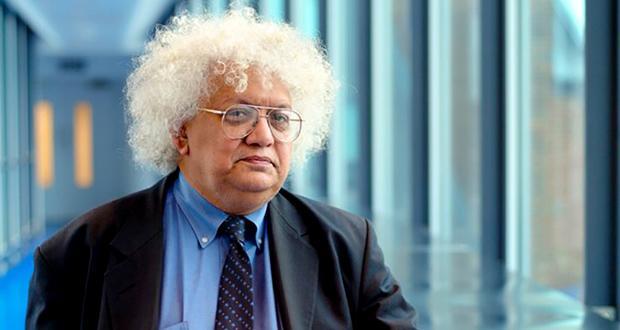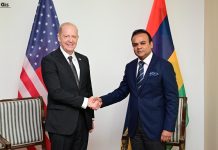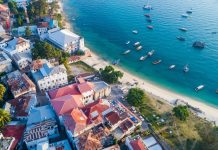Africa-Press – Mauritius. In an interview given to Mauritius Times, Lord Meghnad Desai shares his views on the MIC and the IMF-Washington Consensus policies. “We have not gone into the MIC for profit making; we are here to do what profits the Mauritian economy, not what profits the MIC .
We should therefore not worry about money, we should worry about saving lives and as many livelihoods as possible. To read full interview What economic guidance or philosophy did you bring to the table when you were called upon to chair the MIC as a creation of the central bank?
I had a conversation with the governor of the Bank of Mauritius in March last year soon after his appointment, and he queried about how the Bank could help in the special circumstances of the pandemic which was in its early days.
I wasat that time following what was happening in the US and the UK where they were trying to bail out companies which had lost business and had set up a job retention (furlough) scheme, which granted paid leave of absence to employees.
I suggested that we could do the same thing for Mauritius so that affected companies and jobs could be saved by drawing from the foreign exchange reserves of the BoM rather than remain lying in US Treasury Bills with yields at very low levels.
That’s how he agreed to discuss the matter with his board, and ultimately the BoM went on to set up the Mauritius Investment Corporation (MIC). Thereafter we had a board of management meeting, with myself chairing it, and very quickly an Investment Committee was set up to evaluate applications from distressed companies.
The idea was that rather than grant the furlough, we would instead lend the money to any corporation that applied for assistance. I must say we were very well served by the Investment Committee, which carried extensive due diligence exercises and investigations into different aspects of the business of the applicants.
In return, the companies would give us bonds, which we took the commitment not to sell on the market but to hold them as a kind of collateral. The bonds will of course be cashed after five years, the time that it would take for the companies to recover their losses and kept their workers employed throughout.
The MIC’s mandate also allows it to channel funds for building the future capacity of Mauritius, and we could ourselves take the initiative to do that in case nobody responded positively.
That’s for the future, but for me the priority then was to address the immediate concerns of affected companies so that we could in the same breath save livelihoods.
I don’t know what the vibes in Mauritius regarding the MIC are, but I can tell you that we put in a lot of hard work; we examined 100 applications from corporations of various sizes, out of which 60 have been looked into more carefully.
At the same time we had to build capacity within the MIC, hold board meetings, some 31 of which I chaired at a distance. We have had a very cooperative and helpful board with two representatives of the government, the two deputy-governors of the Bank of Mauritius and two people from business.
It is always difficult for me personally to chair a meeting at a distance, but I think we all did quite well. I have to clarify one thing in response to a comment published in the local press about the bonds we had created and that it was not the most profitable way to go about it.
My point is that we have not gone into this for profit making; we are not a private equity company, and we are here to do what profits the Mauritian economy, not what profits the MIC.
I have said it again and again that our primary focus should be the Mauritius economy of care and love. Yes, you can buy land and set up all sorts of future-oriented projects, but bringing immediate relief to the mauritian economy was the most important thing to do.
I think we have succeeded to do that during the last one year since its inception I referred to the MIC earlier as a creation of the BoM, which is not to the liking of the IMF.
They have recommended to the authorities in their 2021 Article IV Consultations that the central bank should relinquish ownership of the MIC. Were you comfortable, as an economist, with that state of affairs?
I have never for most of my life liked what the IMF says, and I can also add that I have not during those long years taken it seriously. They have always remained several kilometres behind the scene, and they have been changing their stance on so many things.
Tough luck for them if they said what they are reported to have said. The money is transparently invested by the BoM in the MIC, and audit will be kept on that.
As long as it benefits the people of Mauritius, who cares what the IMF says? The IMF logic is still the old logic. . . that somehow central bank interfering in the private economy will lead to corruption and inflation.
. The world has changed, and since the onset of the pandemic, governments and central banks across the world have had to do all sorts of things. We used to look very carefully at the debt-to-GDP ratio at one time; American and the UK’s debt-to-GDP ratio have gone through the roof.
You would not have seen earlier governments introduce things like furlough, but these are extraordinary circumstances which require extraordinary responses.
As long as the money is spent judiciously and on the main purpose for which it was designed — save the jobs, save the affected companies, give them some breathing space — I am not particularly concerned with the IMF.
You would also be aware that the IMF has been quite critical of the central bank’s transfers to the government, and it called in polite terms for reform of the BOM law to “pre-empt further transfers to the government, in line with international best practices”.
It also recommended that the “financing of the MIC should be provided through the budgetary process”. If they want to shut the MIC down, they can do that. We have done what we had to do; we have provided assistance to 60 companies during the last one year. Let IMF say what it says.
Who cares? The pandemic was so unexpected and so unusual, and the normal IMF-Washington Consensus’ budget deficit cutting and penny-pinching policies would not have been appropriate; no country in the world has done that because it is inappropriate.
The pandemic has made us think about policy solutions in an unorthodox way, and that’s why I have been very proud to be part of the MIC experiment. Mauritius has been one of the first countries to adopt a radical proposal like MIC.
The proof of the pudding is in the eating: companies have been saved, jobs have been saved. Mauritius is a very politically sensitive country, and I am sure that the opposition parties are keeping a keen eye on the MIC.
Anyway, whatever we were doing were perfectly straightforward, transparent and effective. We did this for the people of Mauritius when it was urgent to assist the affected companies and theworkers. That’s the bottom line.
For More News And Analysis About Mauritius Follow Africa-Press







